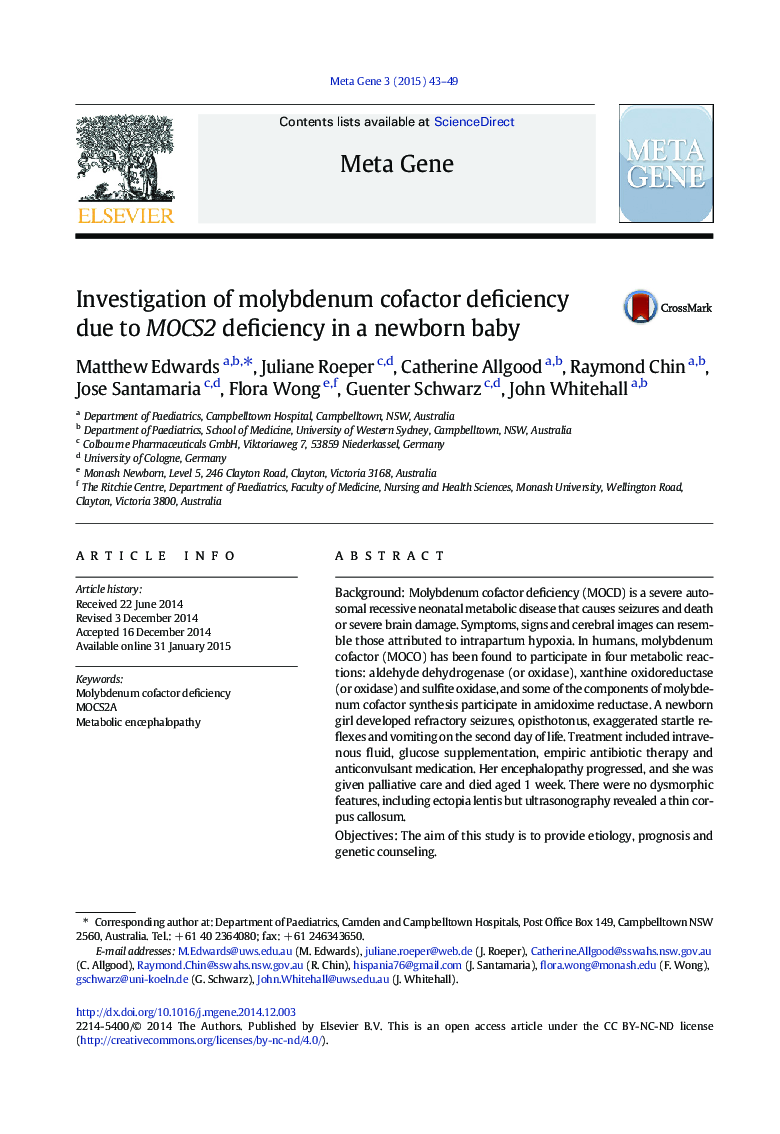| Article ID | Journal | Published Year | Pages | File Type |
|---|---|---|---|---|
| 2058446 | Meta Gene | 2015 | 7 Pages |
•Molybdenum cofactor deficiency is a severe autosomal recessive metabolic disease.•In neonates it can resemble hypoxemic ischemic encephalopathy.•An affected neonate had high urine L-sulfo-S-cysteine, xanthine, and low blood uric acid.•Compound Z was detected in urine.•Of 2 mutations found in the MOC2A gene, one was shown to disrupt protein expression.
BackgroundMolybdenum cofactor deficiency (MOCD) is a severe autosomal recessive neonatal metabolic disease that causes seizures and death or severe brain damage. Symptoms, signs and cerebral images can resemble those attributed to intrapartum hypoxia. In humans, molybdenum cofactor (MOCO) has been found to participate in four metabolic reactions: aldehyde dehydrogenase (or oxidase), xanthine oxidoreductase (or oxidase) and sulfite oxidase, and some of the components of molybdenum cofactor synthesis participate in amidoxime reductase. A newborn girl developed refractory seizures, opisthotonus, exaggerated startle reflexes and vomiting on the second day of life. Treatment included intravenous fluid, glucose supplementation, empiric antibiotic therapy and anticonvulsant medication. Her encephalopathy progressed, and she was given palliative care and died aged 1 week. There were no dysmorphic features, including ectopia lentis but ultrasonography revealed a thin corpus callosum.ObjectivesThe aim of this study is to provide etiology, prognosis and genetic counseling.MethodsBiochemical analysis of urine, blood, Sanger sequencing of leukocyte DNA, and analysis of the effect of the mutation on protein expression.ResultsUric acid level was low in blood, and S-sulfo-L-cysteine and xanthine were elevated in urine. Compound Z was detected in urine. Two MOCS2 gene mutations were identified: c.501 + 2delT, which disrupts a conserved splice site sequence, and c.419C > T (pS140F). Protein expression studies confirmed that the p.S140F substitution was pathogenic. The parents were shown to be heterozygous carriers.ConclusionsMutation analysis confirmed that the MOCD in this family could not be treated with cPMP infusion, and enabled prenatal diagnosis and termination of a subsequent affected pregnancy.
